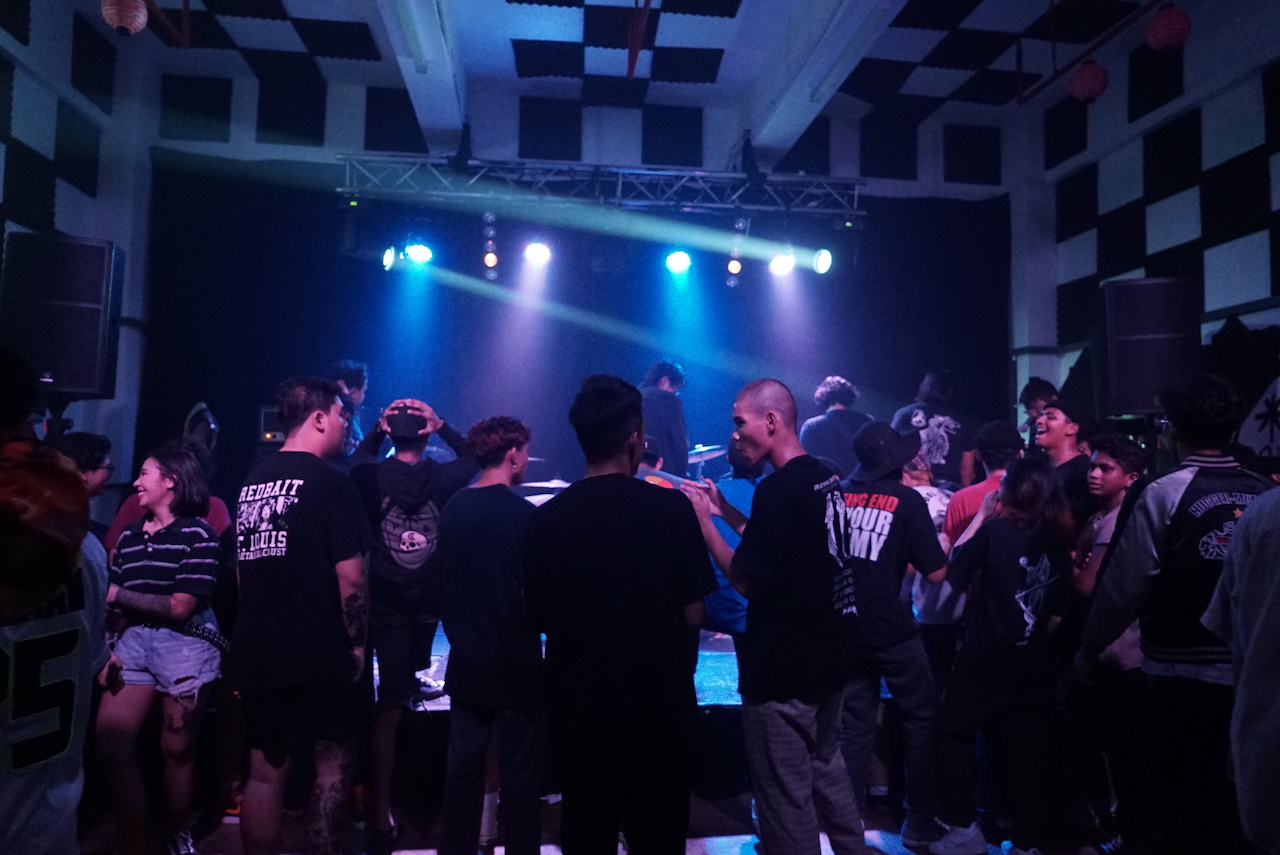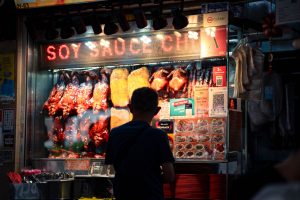“Punk is dead.”
I’m taken aback to realise that Gerald is dead serious.
“It’s true,” he continues.
“Kids these days would rather vent their frustrations on Facebook or Instagram, than make their way down to a gig for cathartic release. Receiving ‘likes’ and sympathetic comments suffices to feel heard and understood. It’s also much more convenient; gigs cost money and time. Young people find it too much of a hassle.”
Unfortunately, this hits home. Guilty as charged; I’ve had my fair share of belting out variations of ‘life is unfair’ and ‘no one understands me’ on more than one social media platform, subjecting my poor, unsuspecting friends to grossly intimate details of my personal life.
However, surely being punk amounts to more than frivolous teenage angst?
“What is punk culture then, exactly? And why is it dead?” I ask Gerald, puzzled by his prior statement. Seeing as we are standing right outside a punk gig, the irony isn’t lost on me.
Granted, it isn’t teeming with people, but it is still a lively affair. Despite being a modest, no-frills event, everyone is deeply immersed, grooving and moshing to the music. Observing this energetic spectacle, I’m struck by the thought of all the glitzy, over-hyped concerts I’ve forked out hundreds of dollars for in the past, many of which had statues for crowds.
The punk scene in Singapore is certainly small and elusive, but to an outsider such as myself, it hardly seems dead (or dying).
As I stand speaking to Gerald and his band along the smoke-filled corridor of a drab industrial complex, he takes a long drag from his cigarette and answers, “The core of punk is rebellion.
“In the early days of our local punk scene, bands would share about politics and ideology during their sets. Not only were gigs for music and community. It was also a safe space for discourse.”
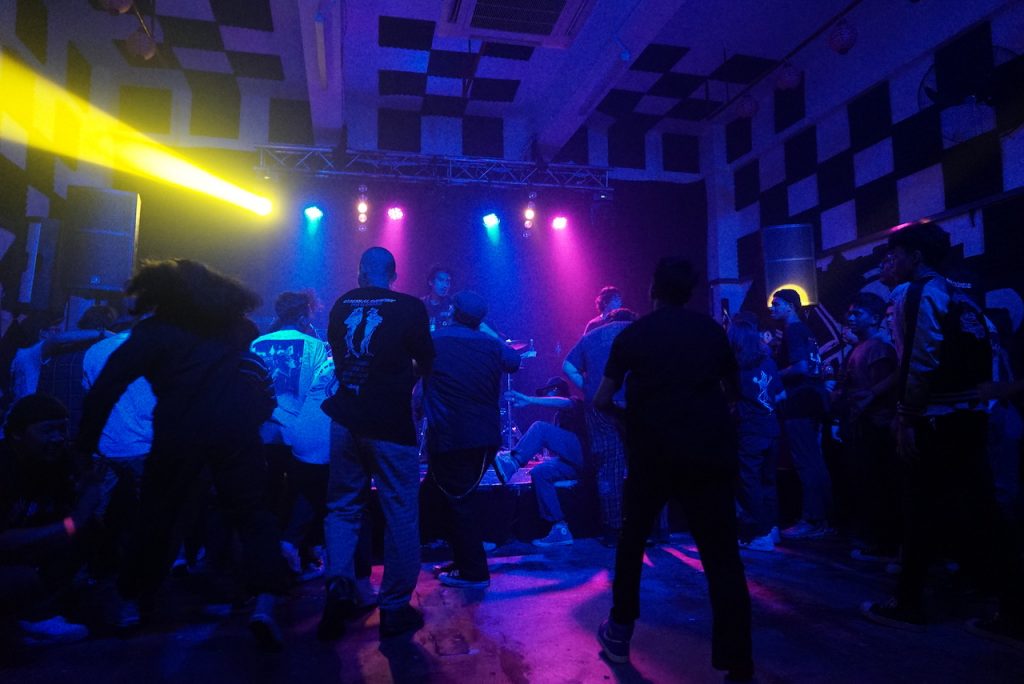
While anti-establishment frustrations have always existed, the absence of social media platforms in the past rendered necessary a physical space for people to gather and communicate. Local punk gigs fulfilled this need, and inevitably facilitated the building of a community that shared sentiments, grievances, and a love for music.
I don’t mean to discount the the ability of social media to both fuel and facilitate rebellion. For instance, social media accelerated the 2011 Egyptian Revolution, where a Facebook group managed to mobilise hundreds of thousands of people to take the streets in protest against corruption in their country. If you ask me, that was a pretty gargantuan feat.
Yet Singapore doesn’t face these turbulent political conditions. For the most part, our use of social media remains limited to posting pictures of truffle fries and fluffy dogs that belong to friends and strangers.
And there is absolutely nothing wrong such frivolity. Though that said, these addictive and distracting tools have made it much harder for the local punk community to grow organically.
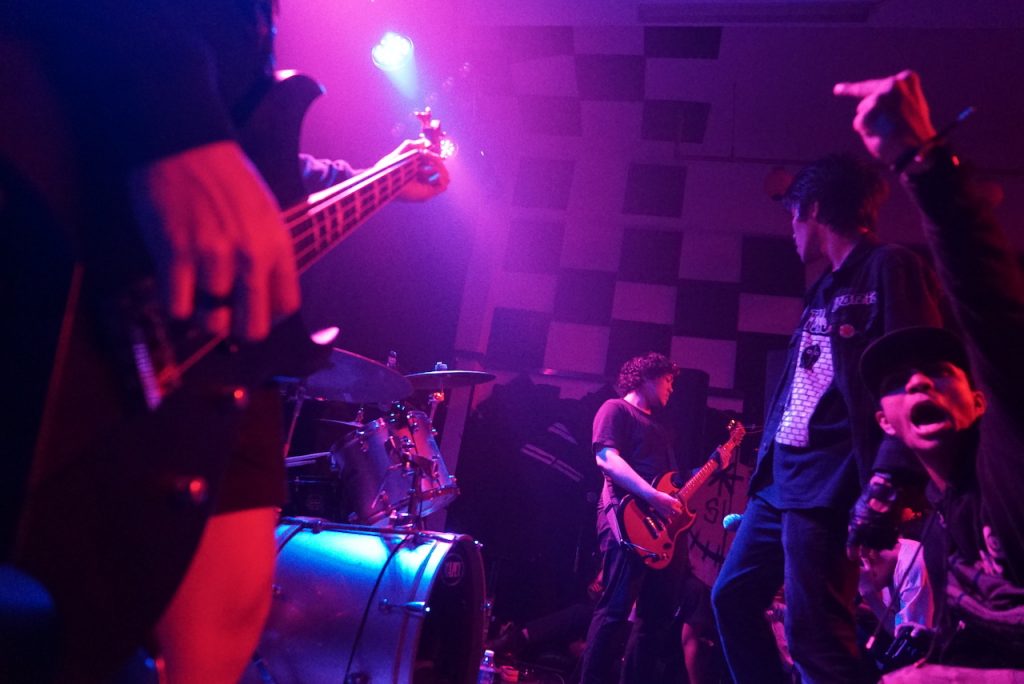
“Back then, the basement of Peninsula Plaza was a popular hangout spot, right where all the guitar shops were,” he shares.
“Posters and flyers advertising local punk gigs and festivals were always seen plastered haphazardly over these shop entrances.”
He tells me that before the dawn of smartphone technology, information mostly circulated via word of mouth. Accordingly, everyone in the community would end up knowing everyone else; you were either someone’s friend or the friend of a friend.
Despite the slower dissemination of information back then, crowds were significantly bigger than you normally see today.
“I remember how eccentrically dressed people at these gigs and music festivals were; they walked around with spiked denim jackets and spiked hair, and coal-black eyeliner. Yet, I found myself being irresistibly drawn towards this community of misfits and colourful personalities,” Ben says.
“The local community supported the local punk scene with so much sincerity and fervour. These days, information has become so easily accessible, all it takes is a few searches on google or a Facebook invite. While this an undeniably positive development, it is also a reason the punk scene in Singapore is struggling.”
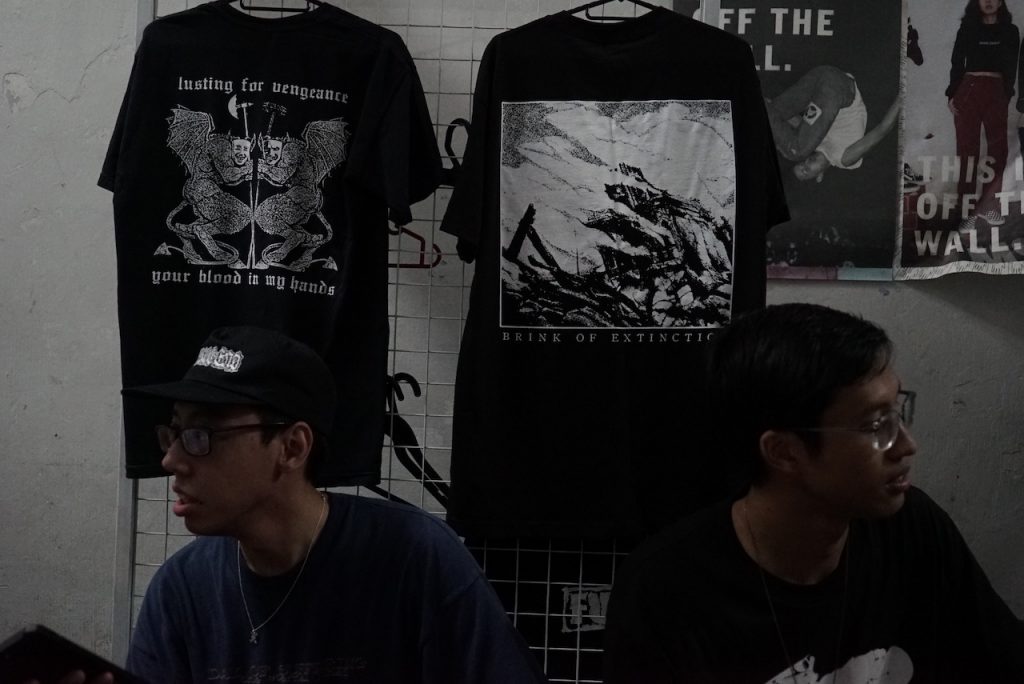
As to whether she ends up going, we need only wait to find out on Instagram.
We’ve been conditioned to be easily captivated by the fads and novelties that bombard our timelines and ‘Explore’ pages. Naturally, we tend to be drawn to those that are visually appealing. Most of us would rather attend an event with floral-themed posters than one depicting a sea of human corpses.
Accordingly, the internet has thrown the local punk scene into the deep end of the unknown, with them competing with entertainment agencies with the budget to market the hell out of their events. The punk community, on the other hand, is often working with a very limited budget. Inevitably, the local punk scene manages to capture the attention of only a very small population of youths.
As for people who are interested in being a part of the local punk community, insider contacts are no longer a prerequisite to access the scene, and mutual friends become increasingly uncommon. Consequently, circles within the community have become more loosely related to one another, yet increasingly exclusive.
Naturally, crowds at gigs have grown smaller over time.
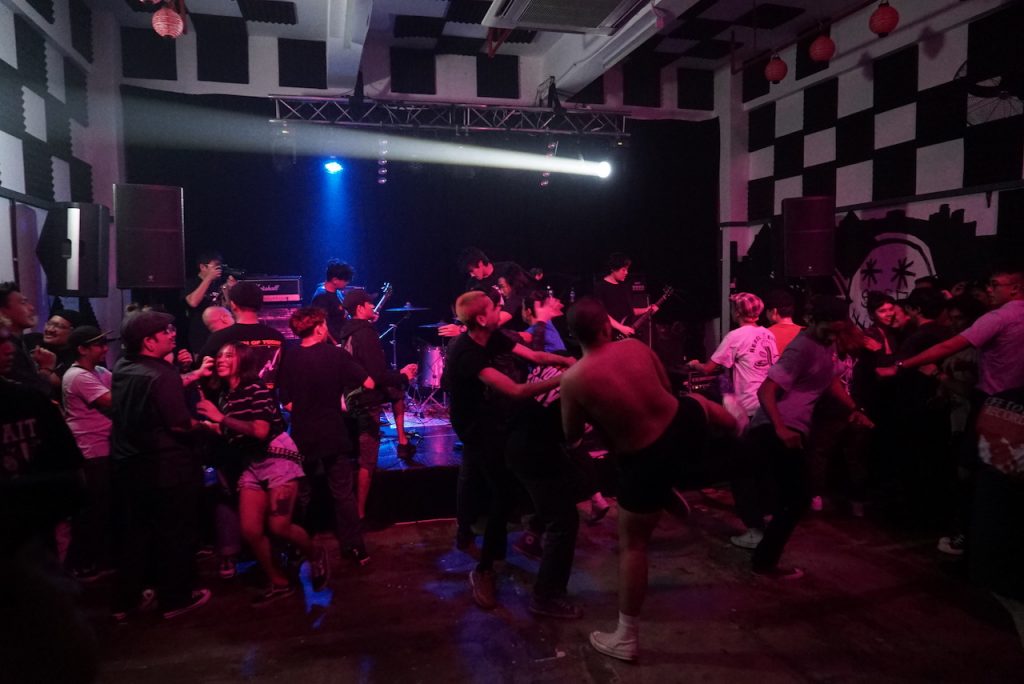
I simply want to illustrate this point: as a society, Singaporeans have acquired an attention deficit disorder from our heavy use of social media. We hop from one trending topic to the next, without ever giving ourselves the time and headspace to figure out where our own judgments land, or what works for our individual personalities.
And this takes a toll on the punk scene, which thrives on frustrations created by society’s fault lines. People have no need for a community that empathises when they’re always distracted, and don’t really know what to be angry at in the first place.
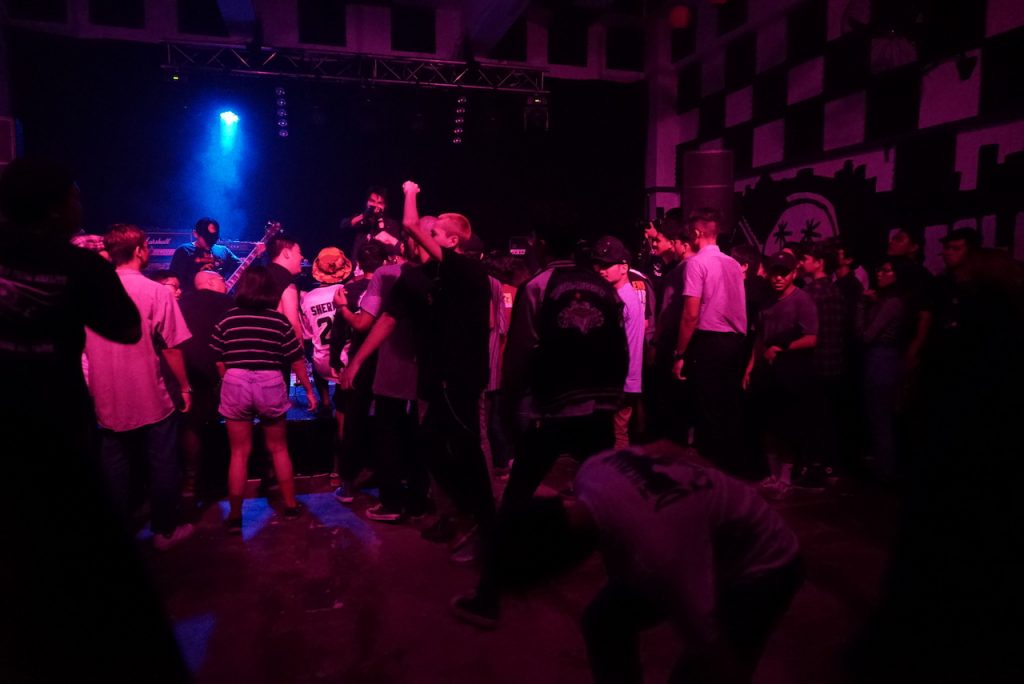
In comparison to its original purpose and definition, punk is dying. It’s no longer a scene for naysayers and renegades. Eventually, everyone grows up and conforms in some way in order to make a living in Singapore.
On top of that, social media has changed the way we express dissent. Not only is it more convenient and effective, it’s simply become more natural.
“Then what does punk mean to you now?” I eventually ask these guys.
Gerald’s band responds with a variety of answers: it’s therapy; it’s healing; it’s comfort.
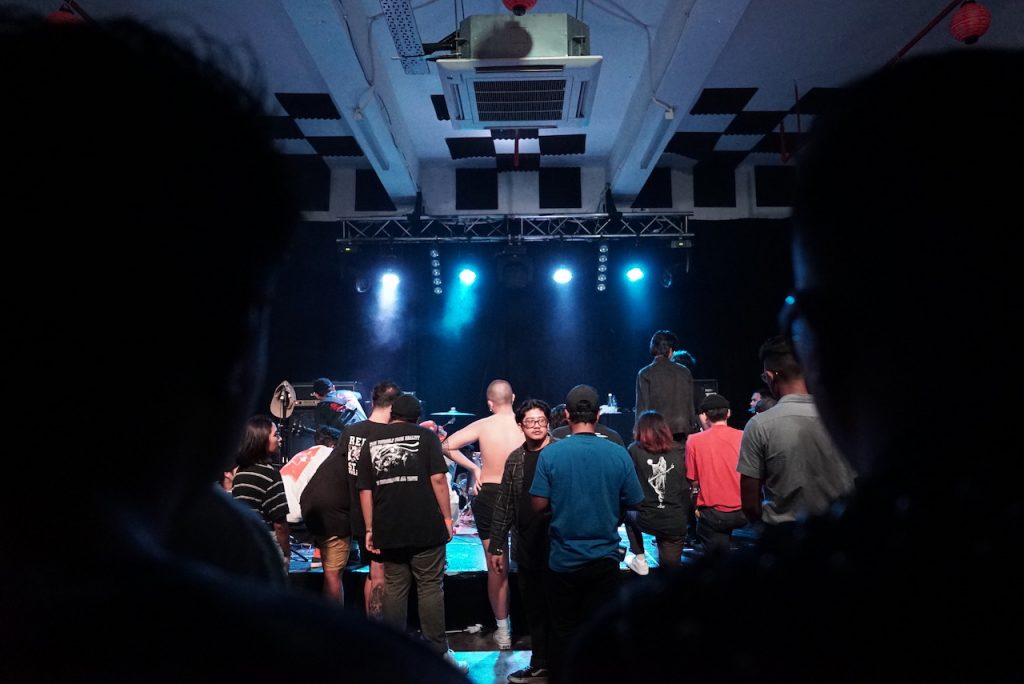
Punk, as I understand it, isn’t dead. It’s just changed. Rebellion will always exist, so long as society remains imperfect.
For as long as this dissonance remains, with some of us feeling like we don’t quite fit into society’s cookie-cutter expectations, punk culture will always have a place.
As I conclude my interview with Ben, he jokes, “People always say that punks are broke, drunk and fucked up,”
And even though I’m not a punk, I think to myself, “So am I.”

